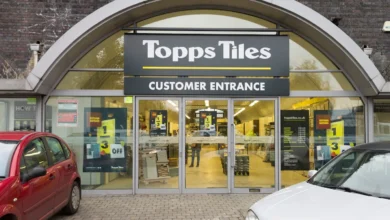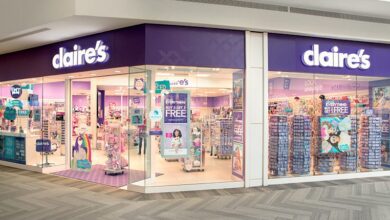Is the rise in distressed M&As set to continue?
Mergers and acquisitions in retail have increased 21% in the last year, however the number of distressed deals have decreased. Fast-forward to the second quarter of this year, four of the nine retail M&A deals (44%) involved the acquisition of a distressed retailer. With business overheads hitting all time highs, and employment struggling, it's a good time to be a corporate business looking to absorb a struggling business.

Register to get 1 free article
Reveal the article below by registering for our email newsletter.
Want unlimited access? View Plans
Already have an account? Sign in
The number of merger and acquisition (M&A) deals targeting UK retailers has increased in the last year, up from 28 transactions to 34 in the last 12 months, as deals in the sector “buck the overall slowdown in M&A”, according to RPC, the international law firm.
However, the UK has seen M&A activity fall 15% over the same second quarter period from 2,490 deals to 2,120 M&A deals in the last year.
Looking closely, up until June 30, four of the nine retail M&A deals (44%) have involved the acquisition of a distressed retailer, for example, McColl’s was bought by Morrisons after talks of administration, and Roland Mouret after the company went into administration.
But, it doesn’t stop there. Recently, Matalan has reportedly been looking for a potential sale ahead of a refinancing deadline after the business was hit by rising inflation and weaker consumer demand. Steve Curtis, a private investor, has reportedly agreed to buy Paperchase which was put up for auction 18 months after Covid-19 affected its revenues and profits.
Another trend over the past six months has been deals targeting fashion retailers which made up 31% (5) of all deals. This is an increase on the previous six months when 22% of deals involved the acquisition of fashion companies. This has been driven by online retailers, which are increasingly looking to accelerate their growth strategies by adding the brand equity that established bricks-and-mortar retail brands have built over the years, according to the RPC.
Retailers are often more susceptible to difficult trading conditions as people reduce their spending compared with other, more essential sectors like food and travel. Absorbing smaller struggling businesses to bolster their existing structures and grow their client and consumer base, showcasing that this increasing trend does not look to be slowing down during the upcoming quarter.
Anna Faelten, partner, corporate finance, explains: “There were robust levels of activity throughout April and May, with 261 UK deals transacted before a slowdown in June when just 72 deals completed, as high and persistent inflation, recession fears, supply chain constraints, geopolitical tensions and increasing regulatory scrutiny had an impact on completed transactions.” This begs the question, will the cost of living crisis decrease the likelihood of distressed businesses being saved? As Faelten said, June saw a decrease of M&A, perhaps financially strong investors are being put off distressed M&A due to uncertainty.
She adds: “despite this softening in M&A activity, there is still appetite for dealmaking and many CEOs are pursuing transactions that will help their organisations with future growth although many are waiting for the right moment to seal the deal”.
This further emphasises that despite the slowing of M&A deals, larger businesses are picking at the carcasses of struggling businesses, to bolster their supply chains, online presence and customer base, while appearing to be saving them from closure and bankruptcy.
With inflation hitting record highs, consumers facing a cost of living crisis, the likelihood of distressed M&A deals continuing as a trend into the future is high. As smaller businesses feel the squeeze of doubling fuel prices and rising cost of overheads, larger corporate groups may be the only path in which struggling ventures can be saved.







